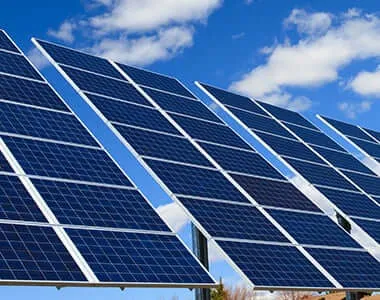solar panel size for 2kw
Understanding Solar Panel Size for a 2kW System
When considering the installation of a solar panel system, one of the key factors to determine is the total size of the solar panels required for efficient energy production. In this article, we will explore the specifics of solar panel size for a 2kW system, highlighting factors to consider and the overall implications for homeowners looking to switch to solar energy.
Understanding Solar Panel Size for a 2kW System
To calculate the number of panels necessary for a 2kW system, consider an example using 300-watt solar panels. To determine the number of panels required, divide the total system output (2000 watts) by the wattage of each panel. Thus, 2000 watts ÷ 300 watts/panel = approximately 6.67 panels. Since you cannot have a fraction of a panel, you would need 7 panels of 300 watts each to achieve a system size of around 2kW.
solar panel size for 2kw

Another critical aspect to keep in mind is the space available for these solar panels. The average solar panel has dimensions of about 65 inches by 39 inches. Thus, a single panel can occupy approximately 17.6 square feet. If you require 7 panels, the total area needed would be approximately 123.2 square feet. Adequate roof space (or ground space) is essential to accommodate the required panels, along with considerations for proper orientation and angle to maximize sunlight exposure.
It is also important to note that solar panels do not operate in isolation; they need an accompanying inverter system to convert the direct current (DC) generated by the panels into alternating current (AC), which is used in homes. The inverter’s size and efficiency will also play a role in the overall system performance and can affect how much energy is actually usable.
In conclusion, when planning for a 2kW solar panel system, consider the size and efficiency of the panels, the available installation space, and the accompanying hardware required for the system. By understanding these factors, homeowners can make informed choices that not only meet their energy needs but also contribute to a more sustainable and environmentally friendly lifestyle. Transitioning to solar energy is a significant step towards energy independence and reducing carbon footprints, making it an appealing option for many.
-
Unlocking Energy Freedom with the Off Grid Solar InverterNewsJun.06,2025
-
Unlock More Solar Power with a High-Efficiency Bifacial Solar PanelNewsJun.06,2025
-
Power Your Future with High-Efficiency Monocrystalline Solar PanelsNewsJun.06,2025
-
Next-Gen Solar Power Starts with Micro Solar InvertersNewsJun.06,2025
-
Harnessing Peak Efficiency with the On Grid Solar InverterNewsJun.06,2025
-
Discover Unmatched Efficiency with the Latest String Solar InverterNewsJun.06,2025







